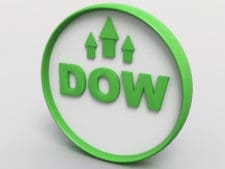 Many of us wanting to gauge the health of the US economy use the Dow Jones Industrial Average as our barometer. If the Dow is up big we assume the economy must be doing very well, and if it’s down we start preparing for the next recession. However, events that took place last week give a prime example of why doing this may not make a lot of sense.
Many of us wanting to gauge the health of the US economy use the Dow Jones Industrial Average as our barometer. If the Dow is up big we assume the economy must be doing very well, and if it’s down we start preparing for the next recession. However, events that took place last week give a prime example of why doing this may not make a lot of sense.
A week ago Tuesday, shares of Boeing dropped nearly 14 percent. This sell-off was not primarily a result of more widespread economic fears but instead was generally a reaction to a second Boeing plane, this time in Ethiopia, crashing and killing all 157 passengers on board. While this tragedy might certainly give you pause in your decision on whether to invest in the aeronautics giant for the time being, it should have virtually no impact on whether you should invest in the “market” as a whole. Yet the drop in Boeing share values alone caused the Dow Jones Index to drop over 150 pts.
While most people are pretty familiar with what the Dow Jones Industrial Average is, what is not as widely known is what it represents. Unlike the S&P 500, which is systematically made up of the 500 largest U.S. publicly traded companies, the Dow is made up of only 30 American companies with no specific rules or criteria for which ones get included in it. The only standard is that, in general, they are large, established companies with a solid track record and history.
Of those 30 companies, Boeing is often weighted at nearly double any other company within it. Therefore, what happens to Boeing has a disproportionate impact on the overall Dow Average. The reason for this is Dow weighting is based on a company’s share value and not their overall value. This causes firms like Boeing whose price per share is very high, to have more impact on the overall average than larger companies whose price per share is less.
This makes the Dow particularly susceptible to volatility unrelated to the overall market conditions – which is why I, and many other investment professionals, don’t view the Dow as a great measuring stick of the overall health of the nation’s economy. Yet if you watch the evening news, whenever they say anything about the stock market, the primary reference point they will use is the Dow Jones. As a result, for most people the Dow has just become their frame of reference and is what they commonly use when making larger investment decisions.
So, the next time you see the Dow is up or down significantly, take a look at how Boeing, United Health Group and 3M are doing that day because those three companies alone make up over 20% of the overall Dow average. There’s a good chance the index will reflect how they are doing regardless of what else is happening on Wall Street. If you don’t own any of those three within your individual portfolios don’t be surprised if your personal investment performance that day is significantly different than how the Dow has done.
(Advice is general in nature and not intended for specific situations. Past performance is no guarantee of future results.)
